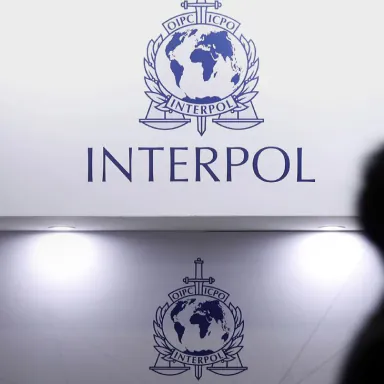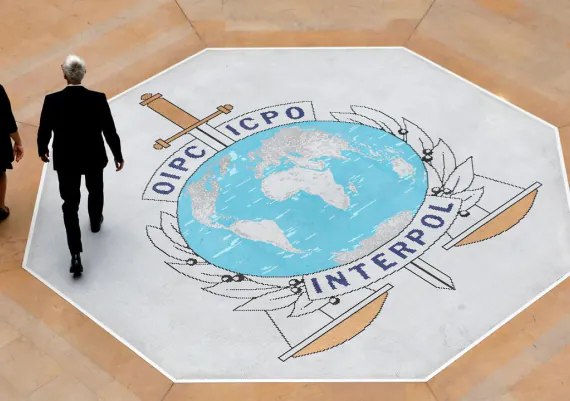Extradition Lawyer in Thailand
Many believe Thailand offers a safe haven from international legal proceedings, but this perception requires careful examination. Does Thailand’s welcoming business environment translate to protection from extradition requests? The reality is far more complex. Thailand’s extradition system operates under stringent legal frameworks and comprehensive international agreements. This detailed analysis explores Thailand’s extradition mechanisms and demonstrates how experienced legal professionals can safeguard clients against inappropriate international surrender demands. Mastering these legal complexities proves crucial, and specialized extradition counsel in Thailand often becomes indispensable for successful navigation of the judicial system.

We are Extradition Lawyers
Extradition attorney Anatoliy Yarovyi has successfully represented clients in Dubai. He is well-equipped to assist in having your name removed from INTERPOL’s databases.

The Fundamentals of International Extradition


The Fundamentals of International Extradition
Extradition represents a critical legal mechanism whereby individuals suspected or convicted of criminal offenses are transferred between nations to face justice. Consider this scenario: a criminal offense occurs within one jurisdiction, the perpetrator is identified, but law enforcement fails to apprehend them before they escape to foreign territory. Authorities then issue international arrest warrants to locate and detain the fugitive.
When such individuals are discovered in Thailand or any other country, local authorities may arrest them pending an extradition request from the country where the alleged crime occurred. The primary objective remains ensuring that accused persons face legal consequences in the jurisdiction where they allegedly committed their offenses. This sophisticated legal framework enables global cooperation in criminal justice matters.

Thailand’s Legal Framework for Extradition
Thailand’s extradition procedures operate under a comprehensive legal structure combining domestic legislation with international agreements. The cornerstone of Thai extradition law is the Extradition Act B.E. 2551 (2008), which underwent significant amendments in recent years to enhance international judicial cooperation.
The Thai legal system incorporates various complementary laws including provisions within the Criminal Procedure Code, constitutional protections, and specific regulations governing international criminal assistance. Notably, Thailand’s Constitution includes safeguards preventing the extradition of Thai nationals and individuals facing political persecution.
s is Federal Law No. 39 of 2006. In 2023, it was amended by Federal Law No. 38.

Key Requirements for Extradition from Thailand
Thailand’s Extradition Act establishes several fundamental conditions that must be satisfied for successful extradition proceedings:
- Dual Criminality Principle: The alleged conduct must constitute a criminal offense under both Thai law and the requesting country’s legal system.
- Severity Threshold: Extradition applies when the offense carries potential imprisonment of at least one year, or when the individual has already been sentenced to imprisonment for six months or more.
- Non-Political Crime Requirement: Thailand prohibits extradition for offenses deemed political in nature or those involving persecution based on political beliefs.
Thai courts meticulously evaluate each extradition request against these criteria. Additionally, requesting nations must provide comprehensive documentation including detailed suspect information, thorough crime descriptions, relevant legal provisions, and supporting evidence.
Inadequate documentation or failure to meet established criteria can result in extradition denial. This underscores the importance of engaging experienced Thai extradition attorneys who understand the intricacies of local legal procedures and can develop robust defense strategies against improper extradition attempts.
Thailand’s International Extradition Agreements
Thailand maintains an extensive network of bilateral extradition treaties reflecting its commitment to international criminal justice cooperation. These agreements establish specific procedures, documentation requirements, and conditions governing extradition requests between Thailand and partner nations.
The significance of these bilateral arrangements cannot be understated, as they define extradition parameters, applicable offenses, required documentation, and procedural frameworks. When handling extradition cases in Thailand, legal practitioners must thoroughly analyze relevant treaties to identify potential grounds for challenging extradition requests.

Countries with Active Extradition Treaties with Thailand
Thailand has cultivated an extensive network of extradition agreements spanning multiple continents, reflecting its strategic position in global criminal justice cooperation. These treaties demonstrate Thailand’s commitment to maintaining international security while balancing sovereignty concerns and human rights protections.
Regional Security Framework
Thailand’s extradition cooperation within Southeast Asia operates through both bilateral agreements and multilateral frameworks. The Kingdom maintains robust extradition relationships with fellow ASEAN member states including Malaysia, Singapore, Philippines, Indonesia, and Vietnam. These partnerships address shared regional security challenges including transnational organized crime, drug trafficking, human trafficking, and terrorism financing.
The Malaysia-Thailand extradition relationship proves particularly active given extensive border connections and historical cooperation. Similarly, the Singapore-Thailand agreement facilitates swift judicial cooperation between these major economic centers. Indonesia and Thailand have strengthened their extradition framework to address maritime crimes and cross-border trafficking operations, while the Philippines partnership focuses on combating regional terrorist networks and cybercrime.
Beyond ASEAN, Thailand has developed extradition relationships with other Asia-Pacific nations including South Korea, Japan, and India, each addressing specific bilateral security concerns and trade protection issues.
Western Hemisphere Partnerships
United States
The comprehensive Thailand-US extradition treaty, signed in 1983 and supplemented by various protocols, represents one of Thailand’s most significant international cooperation agreements. This treaty covers extensive criminal categories including financial crimes, drug trafficking, cybercrime, and terrorism-related offenses. However, implementation sometimes encounters political complexities, particularly regarding cases involving Thai nationals or politically sensitive matters. The treaty includes specific provisions for death penalty cases, requiring assurances that capital punishment will not be sought or imposed. United States
United Kingdom
The UK-Thailand extradition relationship traces back to colonial-era agreements established in 1911, subsequently modernized through multiple protocols and amendments. This long-standing cooperation framework has evolved to address contemporary criminal challenges including financial fraud, cybercrime, and international terrorism. The agreement incorporates human rights safeguards reflecting both countries’ commitments to fair trial standards and the prohibition of torture.
Australia
Thailand’s extradition treaty with Australia, established in 1984, provides comprehensive frameworks for bilateral judicial cooperation. This modern agreement addresses drug trafficking, organized crime, financial offenses, and cybercrime. The Australia-Thailand partnership has proven particularly effective in combating regional drug networks and money laundering operations connecting Southeast Asia with Australian markets.
Canada
The Thailand-Canada extradition agreement emphasizes respect for both nations’ constitutional principles and human rights obligations. This partnership addresses various criminal categories while incorporating safeguards against political persecution and ensuring fair trial standards. The agreement has facilitated cooperation in cases involving financial crimes, drug trafficking, and organized criminal networks.

European Union Integration
- Germany: Thailand maintains active extradition cooperation with Germany through bilateral agreements addressing financial crimes, organized crime, and technology-related offenses. This partnership reflects Germany’s significant business presence in Thailand and mutual interests in combating international economic crimes.
- France: The Franco-Thai extradition relationship encompasses various criminal categories including financial fraud, drug trafficking, and cultural property crimes. France’s historical connections to Southeast Asia have facilitated ongoing judicial cooperation and information sharing.
- Netherlands: Thailand’s extradition agreement with the Netherlands addresses drug trafficking, human trafficking, and financial crimes, reflecting the Netherlands’ role as a major European entry point for Southeast Asian criminal networks.
- Nordic Cooperation: Thailand has developed extradition relationships with several Nordic countries including Sweden, Norway, and Denmark. These agreements typically emphasize human rights protections and incorporate strong safeguards against political persecution, reflecting Nordic legal traditions.
- Switzerland: The Thailand-Switzerland extradition framework addresses financial crimes, money laundering, and tax evasion cases, reflecting Switzerland’s role in international finance and Thailand’s efforts to combat financial crimes.
Multilateral Framework Participation
Beyond bilateral treaties, Thailand participates in various multilateral extradition frameworks including United Nations conventions against transnational organized crime, corruption, and terrorism financing. These multilateral commitments create additional legal foundations for extradition cooperation even with countries lacking specific bilateral agreements.
Non-Treaty Country Considerations
The absence of formal extradition treaties doesn’t automatically preclude international surrender requests. Thailand may consider extradition requests from non-treaty countries based on several factors:
- Diplomatic Reciprocity: Thailand evaluates whether requesting countries would similarly consider Thai extradition requests, creating mutual cooperation incentives.
- International Legal Principles: Universal jurisdiction concepts, particularly for serious international crimes like terrorism, human trafficking, and crimes against humanity, may support extradition even without specific treaties.
- Case-by-Case Analysis: Thai courts examine individual circumstances including crime severity, evidence quality, human rights concerns, and diplomatic considerations when evaluating non-treaty requests.
- Regional Security Priorities: Requests addressing shared security concerns, particularly involving transnational organized crime or terrorism, receive enhanced consideration regardless of formal treaty status.
Practical Implementation Challenges
While extensive treaty networks exist, practical implementation faces various challenges including differing legal systems, language barriers, evidence authentication requirements, and varying human rights standards. Political considerations, diplomatic relationships, and domestic legal constraints can influence extradition outcomes even within established treaty frameworks.
Understanding these complex international relationships proves essential for effective legal representation in extradition matters, as treaty terms, implementation practices, and diplomatic factors significantly impact case outcomes.
Legal Protections and Rights in Thai Extradition Cases
Individuals facing extradition from Thailand possess several fundamental rights and protections under Thai law. These safeguards ensure fair treatment and prevent abuse of the extradition process.
Upon arrest, suspected individuals have the right to legal representation by qualified Thai extradition lawyers. This right should be exercised immediately, as extradition cases involve complex interactions between Thai law and requesting countries’ legal systems, making self-representation extremely challenging.
Key protections include the right to challenge extradition requests on various grounds, including insufficient evidence, political persecution, potential torture or inhumane treatment, discrimination based on race or nationality, unfair trial concerns, and violations of Thai legal requirements.
If a Thai court orders extradition, individuals retain appeal rights within specified timeframes. The appeals process can extend proceedings for months, during which extradition orders may be suspended pending resolution.
Strategic Defense Approaches in Thai Extradition Cases
Effective extradition defense requires comprehensive analysis of Thai extradition law, international legal instruments, and applicable bilateral treaties. Successful defense strategies often focus on several key areas:
- Evidentiary Challenges: Demonstrating insufficient evidence, illegally obtained evidence, or procedural violations in the requesting country’s investigation.
- Double Jeopardy Protection: Establishing that the individual has previously been prosecuted or punished for the same offense.
- Human Rights Concerns: Proving risks of torture, inhumane treatment, death penalty exposure, or other human rights violations in the requesting country.
- Political Persecution: Demonstrating that extradition requests are politically motivated or involve discrimination based on protected characteristics.
- Fair Trial Concerns: Establishing that the individual cannot expect impartial judicial proceedings in the requesting jurisdiction.
- Statute of Limitations: Proving that prosecution is time-barred under applicable legal systems.
- Procedural Violations: Identifying failures to comply with Thai extradition law or treaty requirements.
Our Legal Practice in Thailand
Thailand’s position as a major economic hub in Southeast Asia attracts significant international business activity and investment. This dynamic environment requires sophisticated legal support from practitioners well-versed in both local Thai law and international legal frameworks.
Our legal team possesses extensive expertise in criminal law, immigration matters, and international judicial cooperation. We provide comprehensive legal solutions for clients throughout Thailand and the broader region. Thailand’s unique legal system, combining civil law traditions with specific local practices, requires deep understanding and practical experience to navigate effectively.
With our experienced legal representation, clients gain confidence in legal compliance, risk mitigation strategies, and swift resolution of complex legal challenges.
Expert Legal Team
International criminal cases and extradition matters require collaboration with legal experts possessing both theoretical knowledge and practical defense experience. Our Thai legal team is recognized for expertise across multiple jurisdictions and specialized areas of international law.
Our practice unites highly qualified attorneys with extensive experience in criminal law, international private law, Thai immigration legislation, and Interpol-related matters. We maintain close cooperation with government authorities and international colleagues, enabling prompt and effective client protection. Extradition Defense in Thailand Thailand’s reputation as a business-friendly jurisdiction shouldn’t overshadow the reality of active international criminal cooperation. Thai extradition procedures are sophisticated and governed by specific laws and international treaties. Understanding these complex legal frameworks and securing experienced legal representation often proves essential for protecting against improper extradition requests. This comprehensive guide explains how extradition operates in Thailand and how skilled legal counsel can provide effective protection against unlawful international surrender demands

Contact Us

FAQ
Which countries have extradition treaties with Thailand?
Thailand has signed bilateral extradition treaties with more than 20 countries, including the USA, United Kingdom, Australia, ASEAN countries, and others. The absence of a treaty does not exclude the possibility of extradition based on the principle of reciprocity or multilateral conventions.
Can extradition from Thailand be avoided if the offense is of a political nature?
Yes, Thai law provides an exception for political offenses. If the court determines that an extradition request has political motives or is aimed at persecution based on political beliefs, extradition may be refused.
How long does the extradition procedure take in Thailand?
The procedure can last from several months to 2-3 years depending on the complexity of the case, presence of appeals, and diplomatic negotiations. Urgent cases may be processed faster, especially when international arrest warrants are involved.
What rights does a person subject to an extradition request have?
The person has the right to qualified legal assistance, the right to challenge the request in court, file appeals, demand provision of evidence and guarantees of human rights protection in the requesting country, including protection from death penalty or torture.
Can a Thai citizen be extradited to another country?
According to Thailand’s Constitution, Thai citizens are generally not subject to extradition. However, in exceptional cases involving particularly serious crimes and special agreements, exceptions may be possible. In such cases, Cabinet approval is required.


